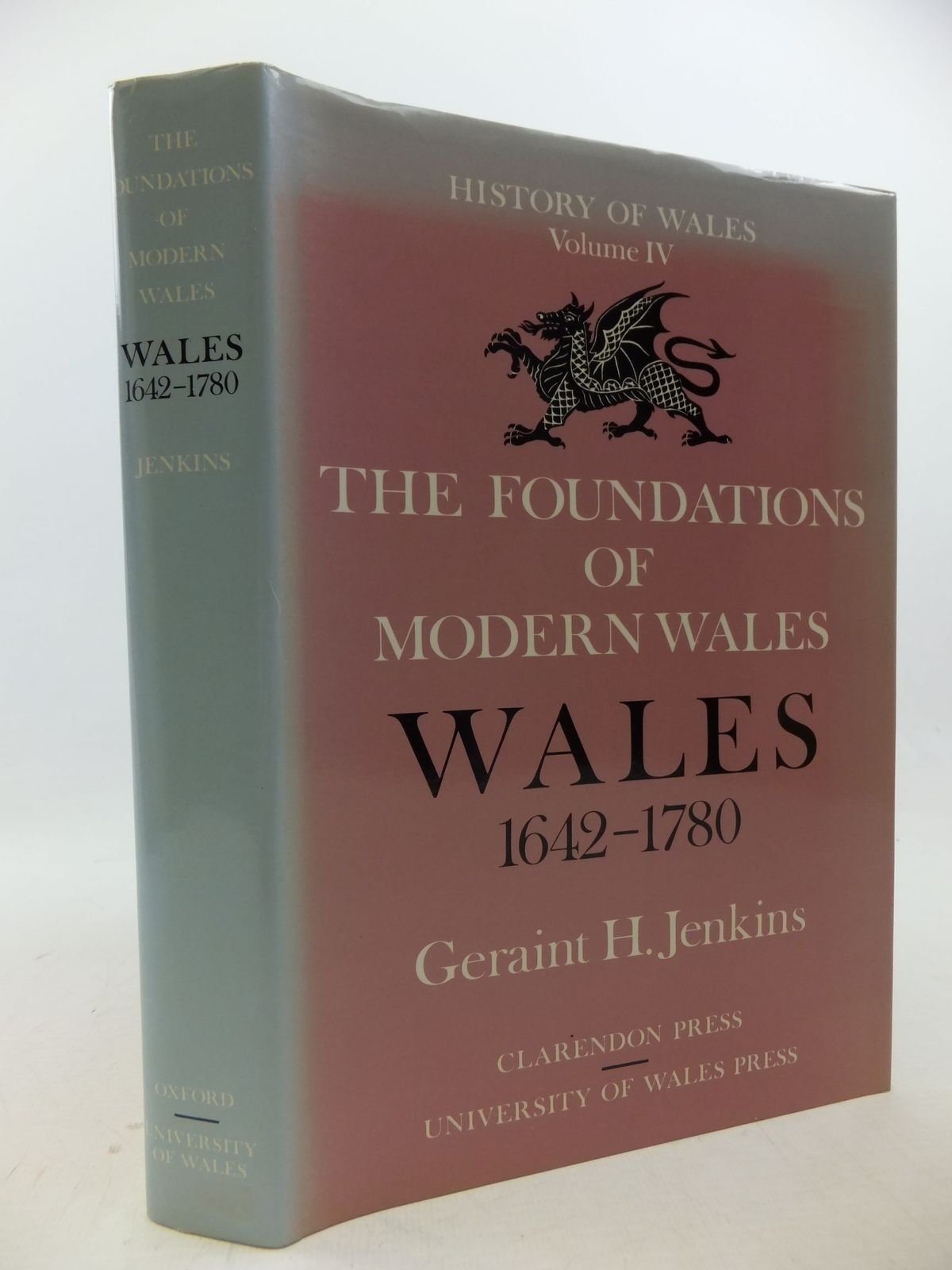


Oxford History of Wales
Series · 5 books · 1980-2012
Books in series

#1
Wales and the Britons, 350 - 1064
2012
This, the first volume in the History of Wales, provides a detailed history of Wales in the period in which it was created out of the remnants of Roman Britain. It thus begins in the fourth century, with accelerating attacks from external forces, and ends shortly before the Norman Conquest of England.
The narrative history is interwoven with chapters on the principal sources, the social history of Wales, the Church, the early history of the Welsh language, and its early literature, both in Welsh and in Latin. In the fourth century contemporaries knew of the Britons but not of Wales in the modern sense. Charles-Edwards, therefore, includes the history of the other Britons when it helps to illuminate the history of what we now know as Wales. Although an early form of the name Wales existed, it was a word in the Germanic languages, including English, and meant inhabitants of the former Roman Empire; it therefore covered the Gallo-Romans of what we know as France as well as the Britons.

#2
The Age of Conquest
1991
This classic study examines the period when Wales struggled to retain its independence and identity in the face of Anglo-Norman conquest and subsequent English rule. Professor Davies explores the nature of power and conflict within native Welsh society as well as the transformation of Wales under the English crown. An account of the last major revolt under Owain Glyn Dwr forms the culmination of this excellent work.

#3
Recovery, Reorientation, and Reformation
Wales c.1415-1642
1987
In the past thirty years the number of scholars inside Wales and beyond its borders who have been engaged in research on Welsh history, and their published output in books and journals, have vastly increased. For the first time ever, it has become practicable to envisage the publication of a standard history of Wales from the earliest times to our own day.
A series of six volumes is being prepared to be published jointly by the Oxford University Press and the University of Wales Press. Each volume, written by an acknowledged expert in his own field, will present an authoritative synthesis of a significant period of Welsh history, incorporating the results of the latest scholarship. The series will be invaluable for teachers and students in universities, colleges and sixth forms. Without any sacrifice of integrity the volumes are also intended to appeal to the general reader with an intelligent concern for the subject.
This book presents for the first time a comprehensive account of the two decisive centuries which followed the defeat of Owain Glyndŵr in 1415. In the process, surprising features emerge. The fifteenth century, the 'Cinderella' of Welsh history, is seen to be one of resilience and recovery from the protracted and destructive Glyndŵr Rebellion, and of the emergence of ruling gentry families—natives and settlers. The Tudor Act of Union, 1536-43, swept away the outmoded lumber of medieval times and reorientated the country. It strikingly confirmed royal authority and gentry domination but along lines that had long been anticipated. The Renaissance and the Reformation posed not only perils but opportunities. Responding to the challenge with vigour and imagination, Welsh scholars and patriots met with marked, if not complete, success.
The Welsh remained prouder and more conscious of their Welshness than has usually been thought. This was an age of outstanding personalities and achievements, as impressive as they were diverse: Owain Glyndŵr and Henry Tudor; Guto'r Glyn and John Dee; William Herbert and Robert Devereux; Siôn Cent and William Morgan; Matthew Gough and Robert Mansell. Particular attention is given to the literature of the age, Welsh and English, prose and verse, to illustrate all aspects of a robust, colourful and formative era.

#4
The Foundations of Modern Wales, 1642 - 1780
1988
Between 1642 and 1780, powerful social forces transformed Wales from an impoverished, downtrodden, and sleepy nation to one on the threshold of unprecedented social, economic, and political change. Drawing on an extensive range of original and published material, Jenkins reveals how
demographic growth, agrarian advancements, the development of heavy industries and trade, and improved communications created the foundation for modern Wales. Among the colorful and influencial personalities who appear in this book are Vavasor Powell, Sir Watkin Williams Wynn, Edward Lhuyd, and Sir
Humphrey Mackworth.

#6
Rebirth of a Nation
1980
In Rebirth of a Nation the acclaimed historian Kenneth O. Morgan provides a wide-ranging and comprehensive analysis of modern Welsh history. Taking as its starting-point 1880, the book covers all aspects of the nations history from political, social, economic and religious development to literary, intellectual, and sporting achievement. His absorbing account spans the years of Liberal ascendancy and of national renaissance from 1880 to 1914; the period of economic depression, the rise of the Labour Party, and tension between Welsh and Anglo-Welsh from 1914 to 1945; culminating in a new sense of national identity following the Second World War.
Authors
Kenneth O. Morgan
Author · 9 books
Kenneth O. Morgan, Research Professor, University of Wales, Aberystwyth, and Honorary Fellow, Queen's College, Oxford.
T. M. Charles-Edwards
Author · 3 books
Thomas Mowbray Charles-Edwards FRHistS FLSW FBA is an emeritus academic at Oxford University. He formerly held the post of Jesus Professor of Celtic and is a Professorial Fellow at Jesus College.
Geraint H. Jenkins
Author · 2 books
Geraint Huw Jenkins, FBA, FLSW was Professor of Welsh History at the Aberystwyth University (then University College of Wales, Aberystwyth) from 1990 to 1993, when he became Director of the University of Wales Centre for Advanced Welsh and Celtic Studies. In 2009, he retired from academia and was appointed Professor Emeritus of Welsh History at the University of Wales.
R.R. Davies
Author · 6 books
Sir Robert Rees Davies was a Welsh historian received a First in his degree from University College, London, where he later returned as a lecturer. In 1975, he was appointed Professor of History, University College of Wales, Aberystwyth. In 1995, he was appointed the Chichele Professor of Medieval History at the University of Oxford and made a fellow of All Souls College. From 1995 to 2005 he served as Chairman of the Ancient Monuments Board for Wales. Davies was appointed a Knight Bachelor for services to history in the Queen's 2005 New Year's Honours.